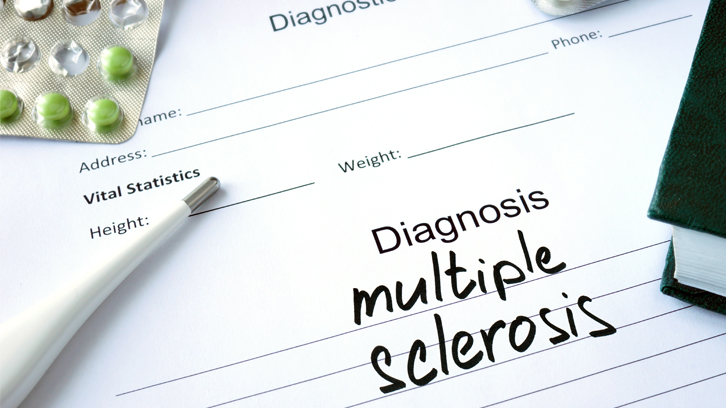Researchers test promising new approach to treat Multiple Sclerosis

Germans Trias i Pujol University Hospital's research team on Multiple Sclerosis and Immunology, led by Dr. Cristina Ramo Tello and Dr. Eva Martínez Cáceres, has developed a therapy based on a cellular product that aims to reprogram the immune response to myelin to avoid further decline.
In multiple sclerosis, one's own body defenses destroy the myelin, a protein that entirely surrounds the nerve tissue of the brain, the optic nerve, and the spinal cord. The destruction of myelin disrupts the transmission of nerve signals, causing problems in strength, sensitivity, balance or vision.
The therapy was recently approved by the Spanish Regulatory Agency, and is backed up by many scientific publications. Its development started in 2007, after studies had revealed that multiple sclerosis patients responded best to vitamin D3-treated tolerogenic dendritic cells.
After having gained more knowledge on the specific effects of the immune response to myelin, the cellular product was first tested in vitro, and later embedded in carefully designed experimental models on sick mice. The results showed a significant improvement and demonstrated that Vitamin D3-tolerogenic dendritic cells play an important role in tolerance induction.
The final step was to upgrade the production of the cellular product from laboratory to clinical GMP requirements, and was executed in collaboration with the Clínica Universidad de Navarra, a center of reference, possessing wide expertise in the field and involved in more than 30 clinical trials with cellular products for several diseases.
The first international multicentre phase 1 clinical trial in this field will start soon and in which Germans Trias i Pujol Hospital, Clínica Universidad de Navarra, and Antwerp University Hospital, all members of the European COST Action BM1305 “Action to focus and accelerate cell-cased tolerogenic therapies” will be partners. All partners in the trial will treat a total of 24 patients with the same cellular product. It is expected that these reprogrammed cells will contribute to cease autoimmune attacks to myelin, hence reducing disease progression.
Until now, immunosuppressive treatments are used to slow down the progression of multiple sclerosis. Although these drugs have proven to be partially effective, at the same time they compromise protective immunity due to the lack of a mechanism that can distinguish cells that cause the disease from those that do not.
The presented new cell therapy is specifically to treat MS-patients and is expected to cause less side effects and to be safer for patients. Although initially patients will need several reinfusions of their own cells, it is expected that time-intervals between reinfusions will be larger, and the immune system will get reprogrammed progressively.
At the moment the research group is searching for funding to complete the clinical trial.
Universitat Autònoma de Barcelona
Head of the Immunology Service at Germans Trias i Pujol Hospital - IGTP
References
Mansilla MJ, Contreras-Cardone R, Navarro-Barriuso J, Cools N, Berneman Z, Ramo-Tello C, Martínez-Cáceres EM. Cryopreserved vitamin D3-tolerogenic dendritic cells pulsed with autoantigens as a potential therapy for multiple sclerosis patients. J Neuroinflammation. 2016 May 20;13(1):113. doi: 10.1186/s12974-016-0584-9. PubMed PMID: 27207486; PubMed Central PMCID: PMC4874005.
Raïch-Regué D, Grau-López L, Naranjo-Gómez M, Ramo-Tello C, Pujol-Borrell R, Martínez-Cáceres E, Borràs FE. Stable antigen-specific T-cell hyporesponsiveness induced by tolerogenic dendritic cells from multiple sclerosis patients. Eur J Immunol. 2012 Mar;42(3):771-82. doi: 10.1002/eji.201141835. PubMed PMID: 22488365.
Grau-López L, Raïch D, Ramo-Tello C, Naranjo-Gómez M, Dávalos A, Pujol-Borrell R, Borràs FE, Martínez-Cáceres E. Specific T-cell proliferation to myelin peptides in relapsing-remitting multiple sclerosis. Eur J Neurol. 2011 Aug;18(8):1101-4. doi: 10.1111/j.1468-1331.2010.03307.x. PubMed PMID: 21749576.


